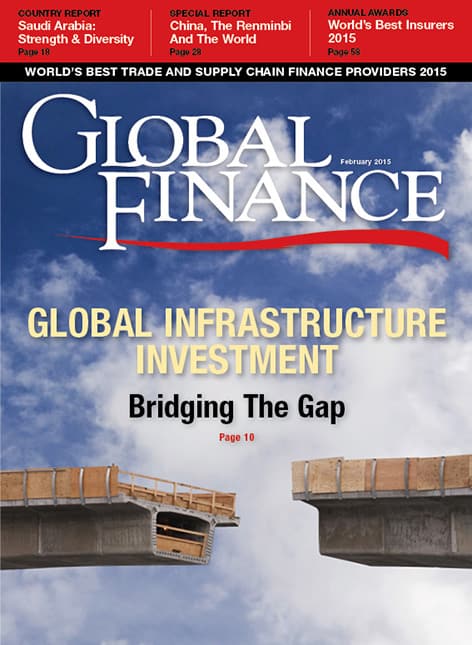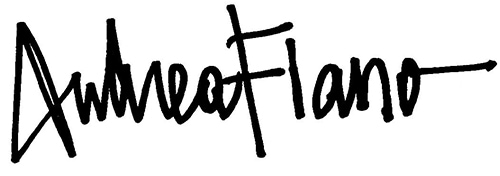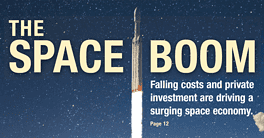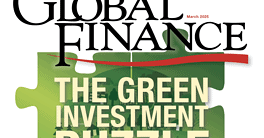Dear Reader
FEBRUARY 2015 | VOL. 29 NO. 2

This may be the Year of the Goat in the Chinese calendar, but so far 2015 looks more like the year of major economic surprises. While everyone, ourselves included, was trying to predict winners and losers from the drastic oil price reduction, low inflation worldwide and the fear of possible deflation have increased uncertainty—as have disappointing economic data from economies as diverse as the United States and China.
This is one reason why the World Bank in January cut its global economic forecasts, although how the drop in oil prices will affect growth is unclear. The World Bank’s
chief economist, Kaushik Basu, said quite eloquently: “The global economy is at a disconcerting juncture. It is as challenging a moment as it gets for economic forecasting.” Basu also said while the drop in oil prices is a net positive for the world economy, it might take several years for this “to feed into its growth outlook.” He added that if world growth relies only on the “single engine” of US growth, then it is self-evident that turbulence might affect capital flight.
The uncertainty made its way into the currency market where the Swiss authorities decided to drop their currency peg to the euro in a sudden decision that was probably taken in the expectation of the massive quantitative easing later announced by the European Central Bank under Mario Draghi. Ashraf Laidi, chief global strategist at City Index in London, predicts that as a result of all this uncertainty, even the US Fed will “hold off from raising rates” later this year.
Our cover story on infrastructure investment is one possible mechanism to increase growth globally. It involves one of the more active areas of banking: project financing. The funding and investment needs are huge on a global scale, but what is really needed is the political will to invest in the infrastructure of developing and advanced economies in order to generate growth and employment.

Andrea Fiano | Editor
afiano@gfmag.com

